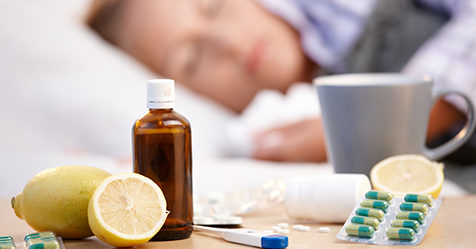Outbreak Highlights Need to Properly Address Salmonella
Here’s what to do if you or a staff member contracts the disease.
Earlier this month, the U.S. Centers for Disease Control and Prevention (CDC) reported that a recent outbreak of salmonella, which caused three deaths and 96 hospitalizations in the United States, could be due to tainted Malichita and Rudy brand cantaloupes.
The outbreak and related cantaloupe recall serve as a reminder of the importance of being prepared for such situations, especially if your facility runs a kitchen, cafeteria, or restaurant.
In response to the specific outbreak, the CDC recommends the following:
- Do not eat pre-cut cantaloupes if you don’t know whether Malichita or Rudy brand cantaloupes were used. This includes cantaloupe chunks and fruit mixes with cantaloupes that might have been purchased grocery stores or at restaurants.
- Do not eat any recalled whole or pre-cut cantaloupe products.
- If you have any of these products, throw them away or return them to the vendor.
- If a whole cantaloupe does not have a brand sticker, check with the vendor to make sure it is not a Malichita or Rudy brand cantaloupe.
- Wash items and surfaces that might have touched the cantaloupe using hot soapy water or a dishwasher.
Similarly, Jamie Winn, medical director at Universal Drugstore, an online prescription service, has offered the following tips on what to do if you or a staff member contracts salmonella:
- Isolate: The most important thing you can do if you or an employee comes down with salmonella is stay isolated. Due to the contagious nature of the disease, an infected person should isolate while suffering from the illness and stay away from work until a full 24 hours pass without any symptoms. This will help prevent transmitting the illness to anyone else.
- Stay hydrated: The main symptoms of salmonella are severe vomiting and diarrhea, which means an affect individual can lose fluids at an extreme rate. For this reason, someone with salmonella should keep dehydration at bay by drinking enough water to replace lost fluids and electrolytes. Oral rehydration solutions are a good way to manage this. Winn recommended taking small sips of water roughly every 10 minutes to see how the stomach handles it. Drinking too much too quickly can lead to further vomiting. If little sips can be managed, an individual should gradually increase how often the water is consumed.
- Rest: Symptoms of salmonella last roughly four to seven days without treatment for most adults. While the usual treatment is to let the illness run its course, resting will not only help a person feel more energized once the symptoms have eased, but it can also prevent symptoms such as dehydration from worsening.
- Maintain good hygiene: Salmonella is a bacterium, so it’s important to regularly wash one’s hands and wipe down any surfaces that the infected person came into contact with, in order to remove the risk of contamination.
- Avoid certain foods: Individuals with salmonella should stick to bland, plain foods, such as dry toast or crackers, and avoid spicy, greasy, and dairy-based products, as these can exacerbate digestive discomfort. There might be no appetite at all during the first 24 hours, so the focus should be on consuming and keeping down enough fluid.
- Painkillers: A fever, chills, and headache are all typical symptoms of salmonella. If you or a staff member develop these symptoms, medication such as acetaminophen can help ease the discomfort.
- Seek medical attention: Most cases of salmonella do not require medical attention. Since it is a contagious disease, infected individuals should refrain from going to a hospital or seeing a doctor. However, if the person is severely dehydrated, cannot drink any fluids, or has a high temperature for an extended period, it’s important to seek medical attention. Salmonella also affects the elderly, young children, and those with an underlying health condition more than the average adult, so symptoms should be monitored closely in these individuals. Medical help should be sought if any of these symptoms worsen.


